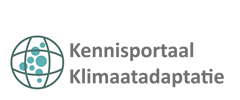Cultural history to tackle waterlogging in the city of Kampen
One side of the river IJssel accommodates the old centre of Kampen; the Station District is located on the other side, over the bridge. In the 16th and 17th centuries, a sconce developed here: a strategic spot where Kampen stopped its enemies. It was a swampy area whose soil hydrology was problematic. And it still is: the area is affected by considerable waterlogging. Climate change is adding to the probability of waterlogging.
Cultural history for a collective design
The municipality of Kampen has been working on a plan for the redesign of the Schans Buitenwacht area for years, in collaboration with residents, entrepreneurs, and the Drents Overijsselse Delta district water board. However, due to the variety of wishes among residents and entrepreneurs, reaching agreement on the new design turned out to be cumbersome. At that point, the Oversticht foundation came up with the idea of exploring how the population of Kampen used to deal with this waterlogging in the past. Together with the Cultural Heritage Agency of the Netherlands (RCE) it intended to capitalise on such cultural-historical knowledge to develop a solution and a design. The fact is that in combination with information on the current water system, cultural-historical knowledge can lead to new insights.
Aims of the project
That is how the “Water Opportunities” project came about. The following aims were set for this project:
- Do not approach water issues solely in terms of technical solutions. Approach them also from the perspectives of local features, of the historic water systems and how these have developed, and of the regional identity. This will allow you to find more sustainable solutions to climate adaptation taskings.
- Propose solutions based on the cultural history of the area, which are specifically tailored to that particular location. This can also contribute to the decision-making process for the complex spatial tasking.
- Use local cultural-historical knowledge as a source of inspiration for the spatial design.
- Garner more social support for climate adaptation measures among residents.
- Cultural history may be of major value in the development of sustainable solutions. Raise awareness of this fact among municipalities and water authorities.
Gathering knowledge and designing in concert
The Oversticht Foundation and the Cultural Heritage Agency delved into the history of the Kampen water systems in order to find out what could possibly cause today’s waterlogging. What has happened at this location and how were people used to deal with water issues here? In addition, the Oversticht Foundation utilised the expertise of the municipal sewer system operators and the district water board hydrologists in their research and the analysis. The results of the analysis are presented in the Waterkansen Kampen report. The municipality set up meetings with residents to share the information gathered. The residents shared their own experience and information with which the municipality could supplement the research. Subsequently, all the parties involved collectively developed sustainable solution strategies and design ideas in a workshop.
‘The historical analysis of the water systems spans many centuries and goes farther back than the studies currently being conducted by hydrologists. This creates considerable insight into the historical water development of a location. At some locations, such insight can be quite helpful for hydrologists and designers.’ - Rolf van Toorn, policy consultant to the Drents Overijsselse Delta district water board
Result
A video was made about the process, which has boosted support among the council members and the residents. Within six months, this approach had enabled the completion of the design process, which had been going on for some eight to ten years. The result is a design that has been approved by the residents and the entrepreneurs. The municipality of Kampen is now finalising the design.
The added value of cultural history
The use of cultural-historical knowledge to develop a design has generated great benefits for the municipality of Kampen:
- Raising awareness and garnering support. Insight into the current and historical water systems raises awareness among residents regarding meaningful solutions to the water issue. This garners more support among residents.
- Expediting the process. Support expedites the process. Garnering more support means that the procedures progress faster.
- Better area analysis. By using cultural-historical knowledge, you are analysing an area from a more comprehensive perspective.
- Avoiding the same mistakes. The municipality will not make mistakes that have already been made in the past.
- Sustainable solutions. Cultural-historical knowledge helps to devise solutions and design ideas that foster climate adaptation and boost the environmental quality.
The lessons to be learned from the project have been compiled in a hand-out, “Acht sleutels om cultuurhistorie toe te passen bij klimaatadaptatie”. These keys are also of use to other projects.
‘Involving cultural history has greatly streamlined and expedited the process, because it has garnered more support for the selected solutions.’ Jantine Sijbring, project manager of the municipality of Kampen
Contact person
Marieke van Zanten
Het Oversticht
Marieke.vanzanten@hetoversticht.nl
06 - 11 51 69 12
